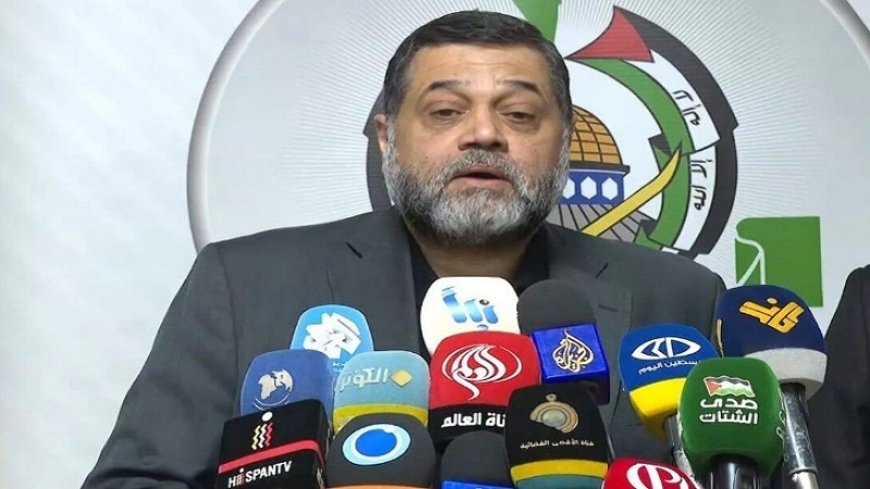Hamas Condemns Latest Israeli Airstrikes in Gaza, Labels Actions as Genocidal
The Hamas Movement has sharply condemned the recent airstrikes by the Israeli military in Deir al-Balah, branding the actions as part of a larger genocidal campaign in the Gaza Strip.

The Hamas Movement has sharply condemned the recent airstrikes by the Israeli military in Deir al-Balah, branding the actions as part of a larger genocidal campaign in the Gaza Strip. The incident, which targeted the Hadija school in the central region of Gaza, resulted in the deaths of at least 31 individuals and left over 100 injured.
Osama Hamdan, a prominent leader within Hamas, issued a statement decrying the attacks. "What is happening in Deir al-Balah is a continuation of the genocidal plan carried out by the occupying Israeli regime. The occupying regime continues to lie by claiming that the Hadija school is where the Hamas leadership is based," he asserted.
Hamdan further emphasized that Hamas had shown willingness to engage with mediation efforts to halt the violence. "We have accepted the serious proposals of the mediators, but the occupiers do not want to stop their attacks," he noted, suggesting that Israel's actions undermine peace efforts.
In a broader statement, Hamas condemned the assault as a "barbaric crime" that stands in stark contrast to humanitarian values. "The occupiers’ brutal massacre in Deir al-Balah is a barbaric crime that confirms this terrorist enemy’s alienation from all human values. We call on our Arab and Islamic Ummah and the free people of the world to rise up and put pressure on the enemy to stop the genocide," the statement read.
The Israeli Defense Forces (IDF) have yet to respond to these allegations but have previously justified similar actions by citing security concerns and the presence of militant operations in civilian areas. This latest attack marks a significant escalation in the ongoing conflict, drawing international concern and calls for restraint from global leaders.
International Reactions and Implications
The international community has expressed deep concern over the escalating violence in Gaza. The United Nations and various humanitarian organizations have called for immediate cessation of hostilities and urged both parties to return to negotiation tables. There are rising fears that the conflict may further destabilize the already volatile region, leading to a larger humanitarian crisis.
Human Rights Watch has reported an alarming increase in civilian casualties, underscoring the urgent need for protective measures and adherence to international humanitarian laws. Meanwhile, diplomatic efforts are intensifying, with Egypt and Qatar reportedly mediating between the conflicting parties to broker a ceasefire.
Context and Historical Background
The Gaza Strip has been a flashpoint in the Israeli-Palestinian conflict for decades, with periodic escalations resulting in significant loss of life and widespread destruction. The densely populated region faces severe humanitarian challenges, exacerbated by blockades and restricted access to essential services.
The recent violence follows a pattern of cyclical confrontations, with both sides accusing each other of provocations. The international community remains divided in its approach to the conflict, with some nations strongly supporting Israel's right to self-defense, while others condemn what they perceive as disproportionate use of force and violations of Palestinian rights.
As the situation in Gaza deteriorates, the need for a sustainable and peaceful resolution becomes ever more critical. The recent events in Deir al-Balah highlight the devastating human cost of the conflict and the urgent necessity for renewed international diplomatic efforts to achieve lasting peace in the region.













































